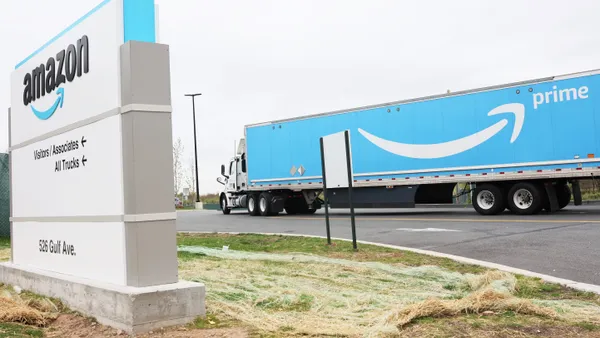Dive Brief:
- The European Union agreed to extend the Brexit deadline originally scheduled for March 29. It will now be May 22 if Prime Minister Theresa May can persuade Parliament to pass her withdrawal agreement next week. If May's legislation fails, the deadline will be April 12.
- "At this point we would either leave with no deal, or put forward an alternative plan," May said of what would happen if her agreement fails.
- It is not yet clear when the next vote will happen. Members of Parliament have been told to expect a vote sometime next week, according to the Guardian.
Dive Insight:
"I think May will lose that vote again — then she will either (1) resign or (2) scramble between now and 12 April to conduct a series of indicative votes trying to get consensus around another exit option ... that she can take back to the EU," Rachel Ellehuus, the deputy director of the Europe Program at the Center for Strategic and International Studies, told Supply Chain Dive in an email.
This news of a third vote comes days after Speaker of the House of Commons John Bercow, said the agreement can't be voted on again unless it is "substantially" different than the previous two versions, which have failed to pass.
"In case of a no vote or a no, directly it will guide everyone to a no deal, for sure," French President Emmanuel Macron said, according to The Guardian. "This is it. We are ready."
May wrote to the EU earlier this week to ask for the extension before traveling to Brussels yesterday to formally make her plea. News of these events has not done much to hearten the business community in the U.K., which has warned for months about the negative consequences of a no-deal break.
"The question on the minds of everyone in business in the UK is: now what? Our future is no clearer today than it was weeks, even months ago. And that is unacceptable," the British Chambers of Commerce said in a statement earlier this week.
This break between the U.K. and the EU comes at a time when the transportation industry struggles to attract talent. A recent report from the International Road Transport Union found the current supply of drivers is only enough to cover 79% of employment demand in the European freight sector. Brexit could exacerbate these shortages, IRU managing director Boris Blanche told Transport Topics.
"If you close the U.K. to drivers from countries like Poland and Romania, it’s going to make the shortage even more acute," Blanche said.















